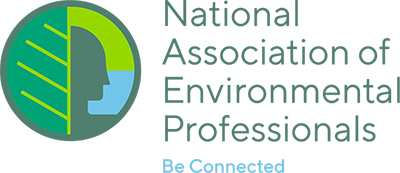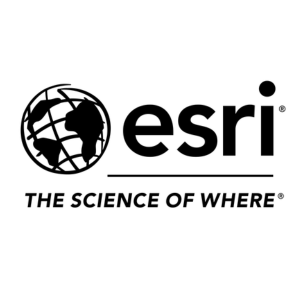- About NAEP
- Membership
- NAEP Chapters
- Working Groups
- Events and Programs
- Awards/Scholarships
- Resources
NAEP Working Group ListservsNAEP Working Group Listservs | What is a Listserv? | How to Join a Working Group Listserv NAEP Working Group Listservs
How to Join a Working Group Listserv
View VideoView Committees and Working Group Main Page What Is a Listserv?Similar to a group chat, a listserv, or e-list, allows you to easily and conveniently collaborate with others in your area, field of work, institution, etc. via a group email. Working Group Listserv access is a NAEP member-only benefit. Once you're subscribed, you can start discussions, ask questions, and get to know other environmental professionals. Anyone subscribed to the e-list can start a discussion via email, and responses will go to all. No login required!
Biological Resources Working GroupListserv Email: [email protected] (You must be subscribed to email in) Purpose: Provides a means by which NAEP members receive and discuss emerging issues surrounding biological resources. Biological resources are defined broadly to include all aquatic and terrestrial plants and animals. Topics for discussion include:
Laws discussed include the Endangered Species Act, Migratory Bird Treaty Act, Magnuson-Stevens Conservation and Management Act, Marine Mammal Protection Act, and Bald and Golden Eagle Protection Act, among others. For more information, please contact Mike Mayer at [email protected]. View Committees and Working Group Main Page Brownfields and Remediation Working Group Listserv Email: [email protected] (You must be subscribed to email in)Purpose: Serves as a resource to NAEP members interested in the planning and implementation of characterization and/or remediation of sites contaminated with hazardous materials. Topics applicable to this group include but are not limited to environmental site assessment, quality assurance planning/data quality objectives, laboratory analysis, ecological and human health risk assessment, remedial investigations, feasibility studies, contaminant modeling and visualization, remediation design & construction, emerging contaminants, and public outreach. Regulations of the most interest to this listserv are the Comprehensive Environmental Response, Compensation, and Liability Act (CERCLA), Resource Conservation and Recovery Act (RCRA), Toxic Substances Control Act (TSCA), Federal Insecticide, Fungicide, and Rodenticide Act (FIFRA), and various state/territorial environmental cleanup regulations. For more information, please contact Josh Hirten at [email protected]. Cultural Resources Working GroupListserv Email: [email protected] (You must be subscribed to email in) Purpose: The NAEP Cultural Resources Working Group members consists of archaeologists and architectural historians who are leaders in the professional community. Members include vice presidents, emeritus federal archaeologists, strategic director, principals, presidents of various organizations, and advocates at all levels of career development. Our mission is to strengthen and expand the engagement and visibility of cultural resources within the environmental community and beyond by offering training for all aspects of heritage consulting, supporting education programs, the pipeline of early career professionals, working with partner organizations toward mutual goals, such as diversity and inclusion of underrepresented communities within the field, and staying current on the changing landscape of heritage consulting in the United States and abroad. Contact Brian Durkin, [email protected].
Emerging Professionals Working GroupListserv Email: [email protected] (You must be subscribed to email in) Purpose: Provides a platform for emerging environmental professionals to connect and network. An emerging environmental professional is generally defined as an individual working in the environmental planning field, with less than 15 years of experience; however, all environmental professionals are invited to take part in this working group. This is a new working group within NAEP, and we are looking for young leaders to help guide the development of this group. If you are interested in joining, please join the listserv using the steps outlined above. If you are interested in a leadership role, please reach out to the point of contact below. For more information, please contact Alexa Banke at [email protected] or Elizabeth Allen at [email protected]. Socioeconomic Impacts & Community EngagementListserv Email: [email protected] (You must be subscribed to email in) Purpose: Provides a platform for leadership and guidance on environmental justice through an environmental planning lens. Periodic sessions will facilitate discussion on regulatory changes, case studies, and best practices in environmental justice. This working group will serve as a vital resource for the environmental professional seeking to stay informed on industry trends, connect with industry experts, and build confidence in implementing environmental justice in this ever-evolving subject. For more information, please contact Kim Wetzel at [email protected]. View Committees and Working Group Main Page Geospatial Working GroupListserv Email: [email protected] (You must be subscribed to email in)Purpose: The Geospatial Working Group provides leadership, guidance, and education on geospatial technology applications in the environmental field. It is hard to imagine modern-day environmental consulting without geospatial technology. It has a long history of supporting environmental professionals to organize, analyze, manage, visualize, and make sense of our complicated world. This working group aims to serve as a vital resource for the environmental professional seeking to stay informed on industry trends, best practices, connect with industry experts, and build confidence in using and implementing geospatial technologies including geographic information systems (GIS), remote sensing, imagery, GPS, surveying, LIDAR, Artificial Intelligence (GeoAI), data models, and more. For more information, please contact Erin Koch at [email protected], Jen Nunn at [email protected], Mehmet Secilmis at [email protected],and Jennie Byron at [email protected]. NEPA Practice Working GroupListserv Email: [email protected] (You must be subscribed to email in) Purpose: Plays a lead role in keeping NAEP membership informed of important legislative and regulatory changes and their potential impacts on the environment and it serves to highlight best practices for all environmental professions. The Committee also informs environmental professionals on important emerging issues and environmental policies, regulations, and legislation. Through the work of this Committee, NAEP members gain a broader appreciation of the value of NEPA and the NEPA process while more confidently understanding the role of the federal government in addressing social, economic, and environmental issues in project development. For more information, please contact Chuck Nicholson at [email protected]. View Committees and Working Group Main Page Offshore Wind Environmental Professionals Working GroupListserv Email: [email protected] (You must be subscribed to email in) Purpose: Provides a platform for environmental professionals who are working at the forefront of new regulatory oversite and scientific expansion in support of the offshore wind industry. This working group will provide an opportunity to expand and diversify the network of environmental professionals working in the offshore wind energy space, allow for greater collaboration and extol the importance of our work outside of the industry. For more information, please contact Samantha Ramsey at [email protected] and Dane Pehrman at [email protected]. Technology in Environmental PlanningListserv Email: [email protected] (You must be subscribed to email in) Purpose: This working group will explore the role of technology, particularly Artificial Intelligence (AI), in enhancing the effectiveness and efficiency of environmental planning processes. The group will focus on the application of AI to the National Environmental Policy Act (NEPA) process but will also consider broader applications of technology in environmental planning. Topics of discussion include (but are not limited to) AI in the NEPA process: current use and emerging trends, emerging technologies in environmental planning, challenges, ethics, and opportunities. For more information, please contact Lauren Schramm at [email protected]. View Committees and Working Group Main Page Listserv Email: [email protected] (You must be subscribed to email in) Purpose: Provides a space for transportation-focused dialogue related to how we operate as environmental practitioners in the transportation industry. Each session will have key topics meant for participants to deliver and share new knowledge related to transit, rail, airports, and highways in all project phases. The transportation working group is not aimed to solve global environmental problems, yet it is geared to generate conversation and present lessons learned as industry professionals. In turn, these sessions should result in better methods of transportation problem-solving and fine-tuning possible solutions to planning process deficiencies in transportation projects. This group has a goal of collaboration and information exchange in this fast-paced industry and everchanging regulatory environment. Each session will be tailored to the attendees preferred topics with a focus on a specific topic to elaborate. The goal of these sessions is to grow a team committed to the research and development of the transportation industry through continued dialogue and conversations, publications, and white papers. The continued commitment should result in effective and productive communications and the advancement of environmental professionals in the transportation industry. For more information, please contact Caroline Levenda at [email protected]. View Committees and Working Group Main Page Water and Coastal Resources Working GroupListserv Email: [email protected] (You must be subscribed to email in) Purpose: Provides leadership and guidance on best practices for water and coastal resources across the country, including Waters of the US/wetlands, floodplains, permitting, coastal resiliency, and other relevant water resources. The Committee identifies relevant policies, legislation, and regulatory changes to water and coastal resources and provides a broader context for these changes to the NAEP community. Project reviews and insights are used to provide lessons learned and cultivate institutional knowledge within NAEP. Participants are active in addressing legislative issues associated with water and coastal resources, including climate change. Regional projects are also highlighted to promote innovative discussions on problem-solving. For more information, please contact Ward Marotti at [email protected]. |


